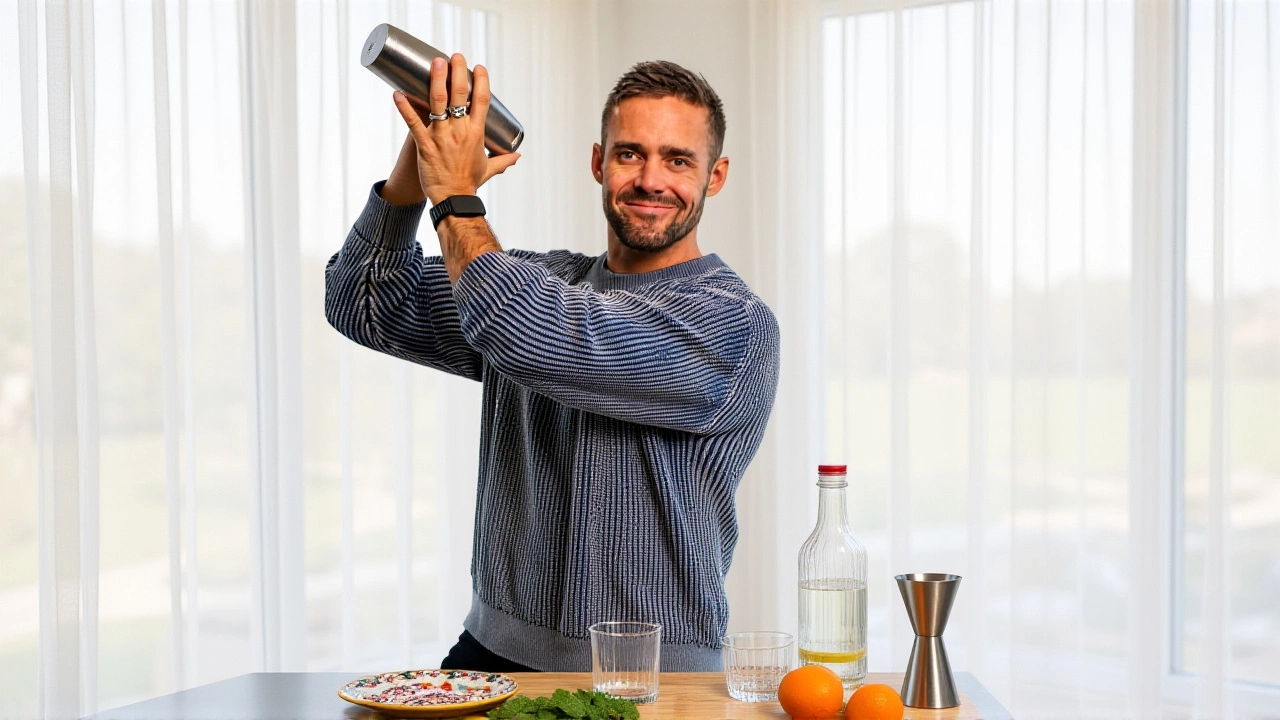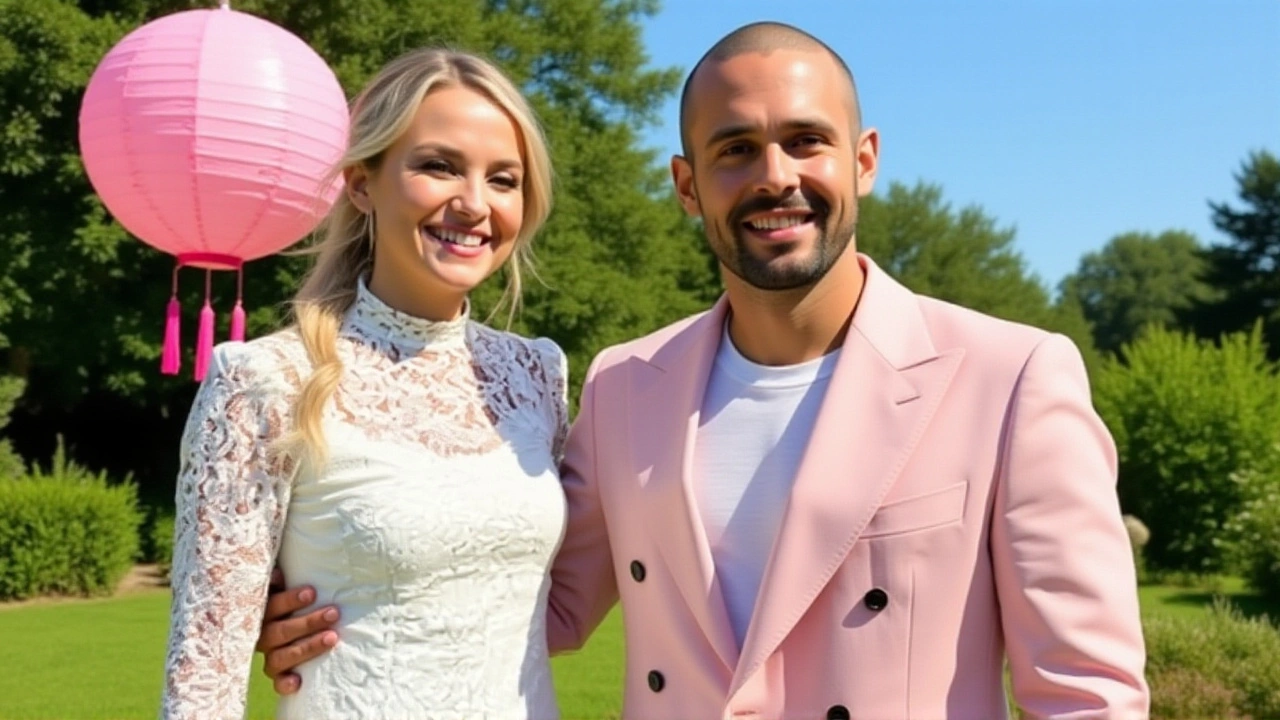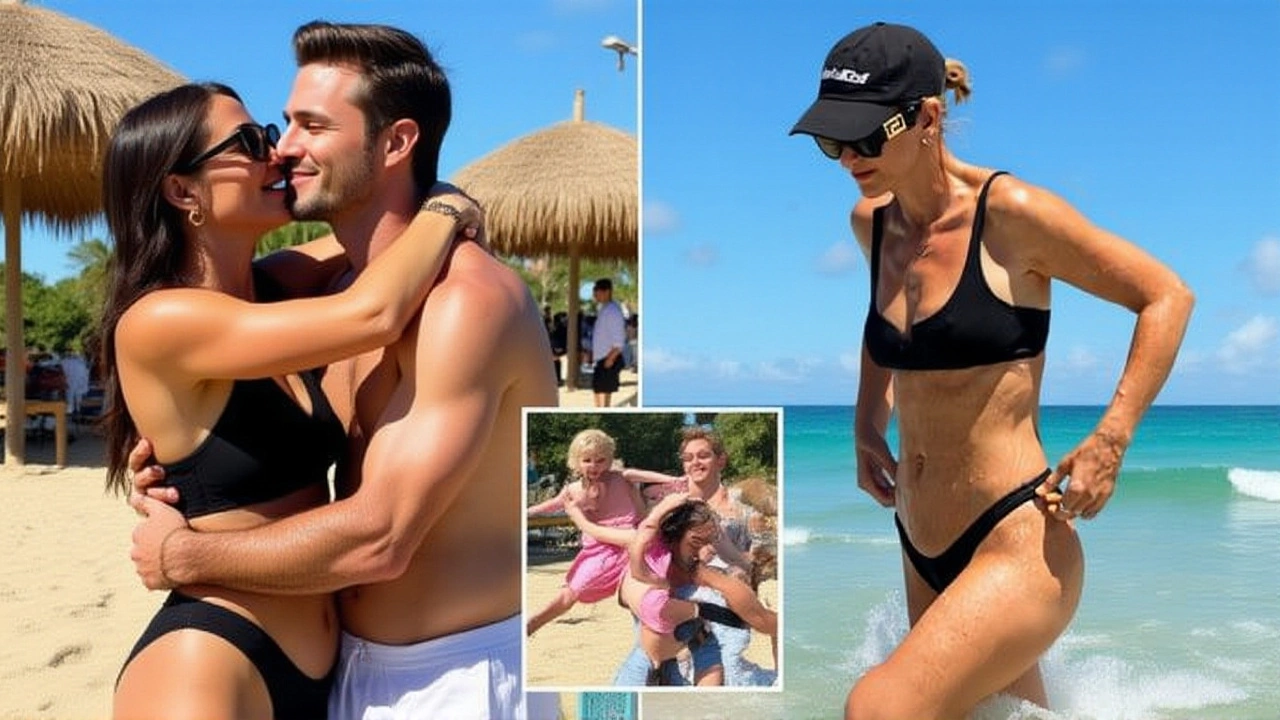When Vogue Williams stepped into the Australian jungle on November 19, 2025, viewers didn’t just see a new contestant—they saw a living echo of a past scandal. Her husband, Spencer Matthews, had been forced out of the same show nine years earlier after admitting he’d been taking steroid-based medication. Now, as Williams tackles the same trials—bugs, bushfires, and brutal challenges—old questions are swirling again: Why was he pulled? And what does it say about reality TV’s duty of care?
Why Spencer Matthews Left in 2016
It wasn’t a meltdown. Not a fight. Not even a panic attack. In 2016, a 26-year-old Spencer Matthews, fresh off the set of Made in Chelsea, arrived in Murwillumbah with a suitcase full of pills. He’d been stacking them for weeks in preparation for a charity boxing match that, ironically, never happened. "Vanity, I suppose," he later told the BBC, "had been the reason for wanting to bulk up a bit for the fight." The steroids weren’t for performance enhancement in the traditional sense—they were meant to help him look leaner, harder, more "TV-ready." But when he disclosed their use to production, the show’s medical team shut it down immediately. "It would’ve been unsafe," Matthews recalled. "I pushed back. I begged. But the duty of care won. Bags had to be packed."
That moment became a turning point—not just for his reality TV career, but for his life. He called it a "serious error of judgement." And he wasn’t wrong. The fallout wasn’t just public embarrassment. It was a wake-up call.
The Comeback: Alcohol, Redemption, and CleanCo
What followed was a quieter, more profound battle. In 2018, Matthews admitted on the Everything I Know About Me podcast that his drinking had nearly destroyed his marriage to Williams. "There was a certainty that I would lose Vogue if I carried on drinking the way I was drinking," he said. She confirmed it on Elizabeth Day’s podcast: "He decided himself to give up. And as soon as he did, he just achieved so much more. His career changed. His life changed."
He didn’t just quit—he rebuilt. He launched CleanCo, an alcohol-free spirit brand, positioning himself as a voice for sobriety. But the journey wasn’t linear. He admitted to becoming "sanctimonious" around drinkers. "I felt superior," he confessed. "That wasn’t healthy." Eventually, he softened. Now, he allows himself the occasional drink—not because he craves it, but because he’s learned balance. "I feel an instant level of regret even when I’m doing it," he said. "That’s why I don’t do it often."

Business Split, Emotional Distance
But even redemption has its fractures. According to the London Evening Standard, Williams and Matthews have "reportedly split their business ventures." Their professional lives, once tightly wound together—podcasts, brands, appearances—are no longer "joined up." That’s significant. It means when Williams entered the jungle, Matthews couldn’t just send a supportive text. He couldn’t be there in person. He couldn’t even appear on the show’s live studio segments to cheer her on. "He will be unable to support his wife in Australia," noted Michael Slavin, Film and TV writer for LADbible and a former editor at DiscussingFilm. "The distance isn’t just geographical—it’s professional, maybe even emotional."
Williams, 40, now competes alone. She’s raising three children—Theodore, Gigi, and Otto—with Matthews, and their relationship remains intact, but the cracks are visible. The fact that he didn’t join her in Australia speaks louder than any interview ever could.
Reality TV’s Double Standard
Why does this matter now? Because reality TV still treats men and women differently. Matthews’ steroid use was framed as a personal lapse, a youthful mistake. Williams’ entry into the jungle is being framed as a courageous comeback. But here’s the twist: she’s entering the same space where her husband was deemed unfit to stay—not because of mental health, not because of injury, but because of a medication he took to look better. Would a woman have been allowed to stay if she’d done the same? Would production have said, "It’s fine, she’s just trying to look good for the cameras"? Unlikely.
The show’s producers have never publicly addressed the gendered implications of that 2016 decision. But viewers are noticing. Jade Biggs of Cosmopolitan UK wrote that fans were "particularly curious" about Matthews’ exit now that Williams is in the jungle. "It’s like the show’s past is haunting its present," she noted.

What’s Next for Williams—and the Show
The current season of I'm A Celebrity... Get Me Out Of Here!Murwillumbah continues to draw over 3 million nightly viewers on ITV1 and ITVX. Williams is already a fan favorite—her humor, her resilience, her refusal to play the "damsel in distress" role. But the shadow of 2016 lingers. Every time she’s asked about her husband, the cameras linger. Every time a challenge is too hard, viewers wonder: Did he make it through this? Did he break? Did he quit?
And maybe that’s the real story here. Not the steroids. Not the sobriety. Not even the business split. It’s this: reality TV turns personal pain into public spectacle—and sometimes, the people who survive it don’t get to choose when their story ends.
Frequently Asked Questions
Why was Spencer Matthews removed from I'm A Celebrity in 2016?
Spencer Matthews was removed from the 2016 season after disclosing he was taking steroid-based medication to bulk up for a charity boxing match that never happened. Production deemed it unsafe due to the potential health risks of continuing the physical demands of the show while on steroids. He later called it a "serious error of judgement," and the decision was upheld by the show’s medical team despite his pleas to stay.
How has Spencer Matthews changed since 2016?
After his steroid scandal, Matthews confronted a deeper issue: alcohol addiction. He admitted his drinking had nearly ended his marriage to Vogue Williams. He quit entirely, launched the alcohol-free brand CleanCo, and rebuilt his career. Though he now occasionally drinks, he says he feels immediate regret, which keeps him disciplined. His transformation is widely seen as one of the most honest comebacks in reality TV history.
Why isn’t Spencer Matthews supporting Vogue Williams in the jungle?
According to the London Evening Standard, the couple has reportedly split their business ventures, meaning Matthews no longer works alongside her professionally. As a result, he is not participating in the show’s live segments or traveling to Murwillumbah. While their personal relationship remains intact, the separation of their professional lives means he cannot offer in-person support during her time on the show.
Is Vogue Williams being judged differently than Spencer was in 2016?
Yes. Matthews’ steroid use was framed as a personal lapse, while Williams’ entry is being celebrated as bravery. But critics point out that if a woman had taken steroids for appearance reasons, she likely would’ve been removed—or worse, vilified. The double standard highlights how reality TV still rewards male redemption arcs while scrutinizing female vulnerability. Viewers are noticing this imbalance, and it’s fueling the renewed interest in his 2016 exit.
What impact has CleanCo had on Spencer Matthews’ public image?
CleanCo transformed Matthews from a reality star known for partying into a sober-living advocate. The brand’s success—now available in major UK retailers—gave him credibility beyond TV. He’s spoken at addiction conferences and partnered with mental health charities. Though he admits he once came off as "sanctimonious," his shift toward moderation has made his message more relatable and authentic, helping him rebuild trust with both the public and his family.
Where is the current season of I'm A Celebrity being filmed?
The 2025 season of I'm A Celebrity... Get Me Out Of Here! is being filmed in Murwillumbah, a town in New South Wales, Australia—same location as the 2016 season. The jungle camp, surrounded by rainforest and wildlife, remains unchanged, making Williams’ experience a direct echo of her husband’s past. Production has not acknowledged the irony, but viewers are drawing the connection.
